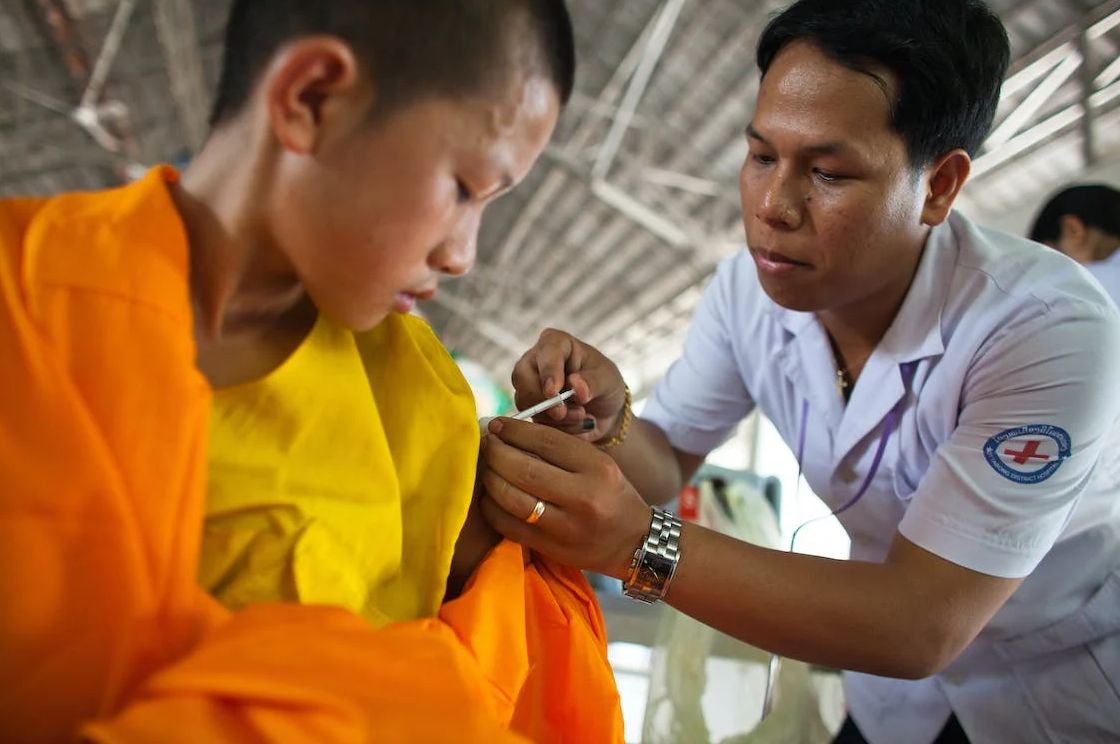
Volunteer Experiences That Enhance Your PA School Application
In the midst of preparing for PA school, many aspiring applicants often find themselves wishing they had more time for volunteer work. Community service can easily become a task pushed aside, often delayed until after completing prerequisite courses or accumulating patient care experience. As time goes on, the goal of fulfilling volunteer commitments may gradually slip further into the future, resulting in a shortfall when it comes to application time.
It’s a common belief that volunteer work is merely an optional add-on, a nice-to-have but not essential for a competitive PA school application. This notion is supported by reported averages of accepted PA students, with just over half describing their participation in community service prior to PA school. However, this statistic overlooks the potential of utilizing volunteer work strategically to enhance your application in specific and impactful ways.
Rather than viewing service work as a generic and vague experience that PA programs may appreciate, you can approach it as a precision tool to differentiate yourself and elevate your competitiveness. In this article, we will explore how you can effectively utilize volunteer work to distinguish yourself and give your PA school application a significant boost.
How Volunteer Work Boosts Your PA School Preparation
While volunteer work is often seen as an optional extra, it can actually expedite your essential PA school preparation in multiple ways. Unlike the lengthy process of gaining certifications or planning prerequisite courses in advance, getting started with volunteering requires minimal effort. A simple search and some basic training can set you on the path to making a difference.
Most organizations are flexible with scheduling, allowing you to fit volunteering into your busy routine. As you work on building the foundational elements of your PA school application, you can look for volunteer opportunities that provide healthcare experience (HCE) or patient care experience (PCE). Joining a local hospital, community clinic, or medical outreach program can help you accumulate HCE hours while you plan for the long term.
As you continue volunteering, you may have the opportunity to transition into a role that offers direct patient care experience. By demonstrating your capabilities and dedication, you can establish connections that may lead to paid PCE positions in the future. Moreover, volunteering can serve as a platform to find PAs to shadow, allowing you to gain valuable insights and establish mentorship connections.
Through volunteering, you can enhance your application in various ways, including HCE or PCE hours, volunteer experience, and shadowing opportunities. All of this can be achieved within a short timeframe, making it a practical step you can take in the next week to advance your PA school aspirations.
| Healthcare Experience (HCE) | Patient Care Experience (PCE) | |
|---|---|---|
| Definition | Involvement in any healthcare-related setting, including administrative or non-clinical roles. It focuses on exposure to the healthcare system and understanding its operations. | Direct interaction and hands-on care with patients in a clinical or healthcare setting. It involves providing direct assistance, support, and care to patients. |
| Examples | Shadowing healthcare professionals, volunteering in a hospital, working in medical billing or administration, conducting medical research, and participating in healthcare advocacy or policy roles. | Assisting with patient examinations, providing personal care, administering medications, taking vital signs, performing diagnostic tests, documenting patient information, offering emotional support to patients, and communicating with healthcare team members. |
| Importance | Provides insight into the healthcare system, builds knowledge of healthcare processes, and demonstrates a broader understanding of healthcare delivery. | Demonstrates direct patient interaction and hands-on care skills, showcasing the ability to work effectively in a patient-centered environment. |
| Application relevance | Helpful for those with limited direct patient care experience, allowing them to demonstrate their exposure to the healthcare field. | Particularly relevant for programs that prioritize candidates with substantial patient interaction and want to assess the applicant’s ability to provide care. |
| Considerations | Can be valuable when combined with PCE to provide a well-rounded application. However, some programs may prioritize PCE over HCE. | A strong PCE is often highly valued by PA programs, as it reflects the practical skills and patient-focused experience crucial for the profession. However, a balance between PCE and other experiences is essential. |
Elevating Your PA School Application with Volunteer Work
Once you have fulfilled the pre-PA requirements or no longer require volunteer work for the basics, it’s time to think outside the box and explore exciting and creative opportunities. While most PA school applications tend to look similar, adding a touch of personalization can make a significant difference.

Admissions committees set requirements to ensure that applicants are prepared for the program. However, these requirements also mean that they review thousands of applications with similar academic backgrounds, GPAs, degrees, and healthcare experiences. This is where you can stand out from the crowd.
While crafting a compelling personal statement is crucial, you are limited by length. The CASPA application restricts every applicant to 5000 characters (roughly 800 words) to convince reviewers that you’re ready to become a PA. However, the number of experience entries on your application is not similarly constricted.
By strategically selecting and showcasing volunteer work experiences, you can enhance your application’s depth and uniqueness. Use this opportunity to highlight your passions and demonstrate your commitment to serving others. Whether it’s volunteering in a specialized healthcare setting, contributing to a medical research project, or organizing community health events, each experience entry provides an additional opportunity to showcase your dedication, skills, and the impact you’ve made.
Moreover, volunteering allows you to expand your network and forge meaningful connections within the healthcare community. These connections can provide valuable insights, mentorship, and potential recommendation letters, all of which can strengthen your application and set you apart from other candidates.
While volunteer work may no longer be a requirement, it remains a powerful tool to personalize your application and showcase your unique qualities. Embrace the opportunity to unleash your passions, make a difference, and elevate your PA school application to new heights. Gone are the days of simply accumulating as many experience entries as possible. It’s now about using each entry as a powerful tool to communicate your values and interests. Keep in mind that programs often review these listings before delving into your essay.
Furthermore, nearly every PA program emphasizes the importance of well-rounded candidates, and their assessment begins as soon as they open your application. Consider how you want to be perceived by the reviewer. Would they grasp your deep affection for rescue dogs? Do they know about your passion for education? Are your claims about serving the medically underserved supported by other elements in your application?

Reflect on your core identity and what truly matters to you
Then, contemplate the types of community service that can paint a holistic picture for someone who has never met you. It could involve tutoring elementary-age students, supporting a women’s shelter, or serving meals to the homeless.
To make informed choices, you must let go of what may simply “look good” to a PA program. This approach goes beyond maximizing healthcare experience (HCE) or solely selecting healthcare-related activities, as many other applications will already contain those elements.
Instead, focus on activities that authentically align with your values, passions, and personal growth. Choose experiences that showcase your commitment to making a difference and highlight the unique aspects of your character. By selecting volunteer opportunities that genuinely resonate with you, you’ll create a compelling and genuine narrative that sets you apart from the competition.
The objective is to select activities that effectively convey your values to a program because there’s more to you than being solely focused on becoming a pre-PA machine. You may opt for one or multiple ways to serve in order to communicate who you truly are. However, it’s essential to demonstrate your dedication through ongoing commitment, rather than participating in one-off experiences.
Choose volunteer opportunities that genuinely excite you. Select causes that genuinely engage your interest, ensuring that you make time for them without struggling to fit them into your already busy schedule. While volunteer work is often seen as a task on the never-ending list of PA school preparations, it holds the potential for so much more. Instead of being a general activity that you hope to engage in someday, community service can skillfully create a more comprehensive and accurate portrayal of your character.
Conclusion
In the continuous pursuit of standing out in your PA school application, volunteer experience offers the opportunity to showcase your unique values and perspectives, differentiating your application from the rest.
Furthermore, the sense of fulfillment derived from assisting others can provide the necessary inspiration and drive to overcome challenges along your path toward becoming a future PA.